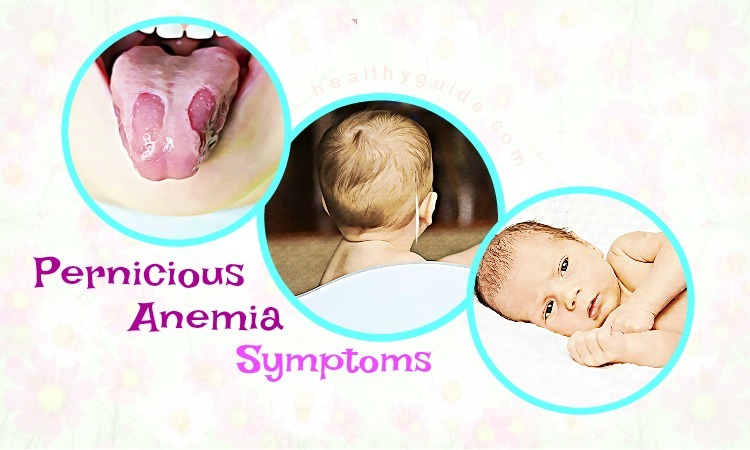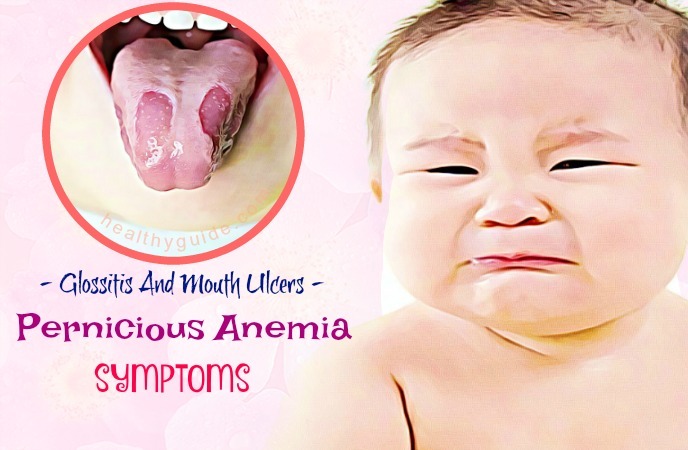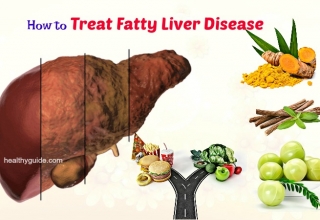Pernicious anemia in infants is an acute low level of red blood cells, and this health condition is found widely in the world. Here, in this article, we want to show you some of the common causes, symptoms, and preventive measures of pernicious anemia in babies. So, if you are concerning about kid’s health, keep your eyes on this interesting article.
List Of Common Pernicious Anemia Symptoms In Adults And In Infants:
To reduce the pernicious anemia symptoms, there are some natural ways. However, at first, you should have a general understanding about this health condition, what pernicious anemia is, what causes it, what common pernicious anemia symptoms are, etc. Now, start reading this interesting article on Healthy Guide.
CONTENTS
I. What Is Pernicious Anemia?
Anemia is a health condition in which the body does not have enough red blood cells or hemoglobin. We all know that hemoglobin is found in red blood cells and it is very important for transferring oxygen to all body’s tissues. According to a study about anemia [1], in men, anemia is diagnosed when their hemoglobin level is less than 13.5g per 100ml while in women, their hemoglobin level is less than 12g per 100ml is defined to be a symptom of anemia. Pernicious is a term that shows destructive or injurious conditions.
Anemia can be caused by a red blood cell destruction or loss of blood as well as the disruptions in the red blood cell production. Also, it can be caused by a deficiency of vitamin B12. Pernicious anemia is caused by an inability to absorb vitamin B12. The body cannot store vitamin B12 for a long time, so the pernicious anemia symptoms often do not appear for years.
II. Causes Of Pernicious Anemia In Infants
Some individuals are more prone to develop pernicious anemia than others. Some risk factors for pernicious anemia are:
- Having a family history of this disease
- Having an autoimmune condition, type- 1 diabetes, or certain intestinal diseases like Crohn’s disease
- Having been removed a part of your intestines or stomach
- Being a strict vegetarian or not taking supplements of vitamin B12
- Having premature birth
- Babies born to diabetic mothers
- Having low birth weight
- long-term use of some medications and antibiotics
List of 26 Best Smoothies For Diabetes Treatment And Relief will show you some of the healthy and delicious smoothies that can help relief and treat the symptoms of diabetes, so check it out!
III. Pernicious Anemia Symptoms In Infants
Pernicious anemia is a form of vitamin B12 deficiency, which affects the nervous system, resulting in a variety of symptoms. In some cases, these symptoms may occur before symptoms related to the pernicious anemia. These symptoms may be various and nonspecific. Besides, the progression of pernicious anemia can be slow. Therefore, you can find difficult to recognize the pernicious anemia symptoms.
1. Pale Or Jaundiced Skin
This should be the first one among pernicious anemia symptoms in adults and infants that you should know. Infants with a pernicious anemia often look pale or have a jaundiced skin with slight yellow skin. This condition occurs when they have problems with the production of their body’s red blood cells. As we know that vitamin B12 is very important for the production of the DNA required for making red blood cells. When your child lacks vitamin B12, the instructions for cell division are incomplete, and therefore, cells cannot be divided. When he does not have many red blood cells around the body, it can makehis skin pale in color.
Read on 22 Homemade Juices For Glowing Skin In A Week to discover some of the best homemade juices for those who want to have a glowing skin.
2. Nerve Damage
One of the pernicious anemia symptoms that you should know is nerve damage. This process occurs over time because vitamin B12 is known as important factor for the metabolic pathway producing the fatty substance called myelin, which surrounds the nerves to protect and insulate them. When your child has a vitamin B12 deficiency, myelin will not be produced properly; therefore, his nervous system will not be able to function properly.
A common symptom of this condition is paresthesia. In the early pernicious anemia stages, he mightnot feel some sensations in the feet or hands. When the disease develops, muscle spasms and problems with walking and balance might develop. Therefore, those with pernicious anemia do not feel sensations with light pain and temperature sensations.
3. Poor Height And Weight
Since the baby’s body does not have enough hemoglobin and oxygen for growth, he may have a reduced height and weight. Therefore, if you want to know more about pernicious anemia symptoms in adults and infants and treatment, you should not skip out this symptom.
If you want to discover some of the best tips that can help you maintain a healthy weight without needing to follow a harsh diet, read on How To Maintain A Healthy Weight Without Harsh Dieting
4. Shortness Of Breath
When it comes to pernicious anemia symptoms in adults and infants and treatment, shortness of breath may be what your baby experiences. As we know that a deficiency of iron or vitamin B12 can cause the body to produce the deficient of hemoglobin, which is very important for the production of red blood cells. When there are not enough amounts of hemoglobin, some body’s parts will not get the oxygen they need. As a result, infants with pernicious anemia are often out of breath easily, and in some cases, they can feel dizzy or lightheaded.
5. Pernicious Anemia Symptoms- Fatigue
According to a research [2], one of the most common pernicious anemia symptoms in adults and infants is a feeling of exhaustion. The challenge of this symptom is that everyone has a different experience. Some children will feel more tired while other children will feel it after doing activities. Actually, the fatigue is caused by the same process resulting in shortness of breath. When there is not enough hemoglobin, the body will not have enough oxygen to fuel the body.
6. Chest Pain
When there are not enough healthy red blood cells, the heart will need to work harder by pumping more oxygen and blood to tissues throughout the body. Therefore, the heart will beat faster than normal and then your infants may start havingchest pain. If pernicious anemia causes stress on the heart, you should have your baby’s blood tested for anemia. Actually, this symptom is a problem that you should not ignore, especially if your children have other heart problems. This is actually one of the most common pernicious anemia symptoms that people should not look down yet watch out for good!
To know some of the best ways that can help you keep your heart healthy, read on Top 15 Effective Ways On How To Maintain A Healthy Heart
7. Hair Loss
This is another one among pernicious anemia symptoms that you should not look down, yet try to find the proper treatments as soon as possible. According to a study, hair loss or thinning hair can be improved when the anemia is treated.
If you want to know some of the most effective ways that can help you stop hair loss in both men and women, read on 23 Ways On How To Stop Hair Loss Naturally In Men And Women
8. Mental Problems
If your children are having difficulty in concentrating and remembering things, it might indicate that they are suffering from pernicious anemia. Also, infants with pernicious anemia may develop lower IQ, have reduced motor development and other mental health problems. Even, older infants with anemia may develop behavioral and social problems.
9. Restless Leg Syndrome
Restless leg syndrome is known as a neurological disorder that causes patients to have uncomfortable sensations in their legs and other body’s parts and then they cannot control their urge to move constantly. Although there is no relation between this disorder and pernicious anemia, about 15% of those with this condition also have a deficiency of iron.
10. Growth Or Developmental Delays
You need to pay attention to any growth or development delays in your infants because these delays may indicate a pernicious anemia. Delayed development or growth can occur when your baby’s organs do not have enough oxygen in order to grow properly. Therefore, you should talk with your baby’s doctor if your baby is not growing accordingly.
11. Pernicious Anemia Symptoms- Irritability
Other pernicious anemia symptoms must include irritability, which has been reported by the infants with anemia. If your baby has anemia, he may become more irritable than normal. This may be a symptom of anemia, so you should ask your doctor about your baby’s irritability. Also, an increased heart beat can make you feel anxious.
12. Black Stools
Dark stools, blood in the stool could indicate that your children are suffering from pernicious anemia. Also, it could be a symptom of a GI condition or colon or stomach cancer; therefore, you should take your children to the hospital immediately. A change in their bowel habits or abdominal discomfort is also symptoms and signs you should look for.
There are other pernicious anemia symptoms and treatment in this article. So, you should continue to read the remaining of this article and then try to take your baby to the hospital for necessary tests.
13. Excessive Sleeping
If your baby sleeps too much, you should ask your pediatrician as soon as possible because this can be a symptom of pernicious anemia. Your baby does not get enough oxygen in his blood, so he cannot remain awake for his normal periods of time. Take note of how long your infant sleeps within a day. When he is awake, take notes on how active he is. Then, give your notes to the pediatrician to help treat this condition properly.
14. Decreased Appetite
According to a research about symptoms of anemia and vitamin B12 deficiency [3], people with pernicious anemia easily feel tired. So, if your baby shows a decreased appetite, you should start taking notes of how often your infant nurses. Otherwise, if your infant drinks formula, you should take note of the formula’s volume your child drinks at each feeding and then consult with your pediatrician.
15. Impaired Immune System
In regard to learning pernicious anemia symptoms and treatment, you should pay attention to your baby’s immunity. Iron plays a vital role in protecting the body from pathogens as well as the development of the immunity. Research has found that a decrease in immunity levels can result from pernicious anemia. A low immunity can make your baby prone to diseases and infections.
16. Changes To Mobility
The damage to your baby’s nervous system can cause changes in the way of walking and moving. Also, it can affect his coordination and balance, making him more prone to falling. Besides, this symptom can be foundin the elderly who have a deficiency of vitamin B12 and treating deficiencies in this group can help improve mobility.
17. Glossitis And Mouth Ulcers
Glossitis is used to describe theswollen and inflamed tongue. When your baby has glossitis, his tongue will change color and shape, thereby making it red, painful and swollen. Apart from causing pain, glossitis can change the ways of eating and speaking. Addition to this, some people with pernicious anemia may suffer from other oral symptoms, including mouth ulcers, and an itching and burning sensations in the mouth.
18. Strange Cravings
Another symptom of pernicious anemia is to crave non-nutritional items such as clay, ice cubes, baking soda, pencils or dried paint. Even, researchers still do not find the reasons why patients with anemia crave eating these unusual food substances. It may be a = common symptom of nutritional deficiencies.
19. Pernicious Anemia Symptoms- Headaches
Tension headaches are common in those with pernicious anemia, but if you cannot reduce the pain, you should see your doctor for the proper headache relief. Actually, headaches are pernicious anemia symptoms that you should not look down, yet try to find the exact reasons for this condition before starting the treatments.
20. Disturbed Vision
One of the pernicious anemia symptoms in infants is disturbed vision.This can happen when the nervous system damages your baby’s optic nerves. This damage can inhibit the nervous signal that transfers from the eye to the brain, thereby impairing his vision.
21. High Temperature
This is another one on the list of pernicious anemia symptoms that we want to mention in this article and want all of the parents to know, especially when they are suspecting that their infants are experiencing this kind of anemia. Generally, an occasional symptom of pernicious anemia is a high temperature. Although the reasons for this condition are not clear, some researchers have found that the cases of fever can be normalized after treatment with a deficiency of vitamin B12.
22. Mood Changes
This is the last but very common one among pernicious anemia symptoms that you should not ignore. People, including infants with pernicious anemia often have changes in mood. Actually, low levels of vitamin B12 have been associated with mood swings. This is because the high levels of homocysteine due to low levels of vitamin B12 could lead to damages to the brain tissues, thereby resulting in mood changes. However, according to a study about emotional changes [4], it is very important to remember that moodiness can have a lot of causes. Therefore, the treatments for these conditions are still unclear. If your baby’s anemia is caused by a deficiency of vitamin B12, taking a supplement can be helpful for improving the mood.
IV. Pernicious Anemia Symptoms And Treatment
The pernicious anemia symptoms can be reduced by adding vitamin B12-rich foods to the diet and these symptoms can be treated after just several days of medical treatment. Some great sources for you are meat, milk, poultry, shellfish, eggs and fish. Alternatively, pernicious anemia symptoms treatments must include taking high dosage of vitamin B12. An oral dose of 100-200mcg should be taken weekly.
Ways on how to treat vitamin B12 deficiency anemia should begin with:
- Vitamin B12 injections that are gradually decreased over time
- Blood tests to find the proper treatments
- Complete blood counts for measuring vitamin B12 [5] and iron levels in the blood
After your vitamin B12 levels become normal, you can take regular dosages of B12 supplements instead of using vitamin B12 injections. They can come in nasal gels, pills and sprays.
Although there is no cure for all kinds of anemia, the key for you is to understand the causes and the symptoms, and then work with your doctor to remedy your diet. Talk to a doctor if you notice that your baby has pernicious anemia symptoms.
Hope that this list of pernicious anemia symptoms can help you know whether or not your baby is suffering from this condition. Do let us know if this is helpful for you or you know other symptoms your infants can experience by dropping your words in the comment section below. Also, remember to visit our website to discover health and beauty facts.


































Leave a Reply